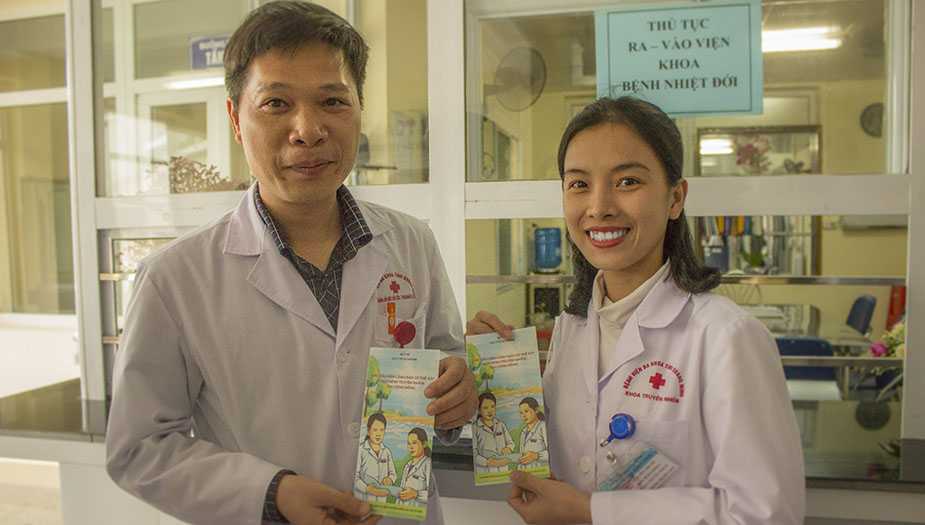Vietnam Update: Community-Based Surveillance Yields Results

Doctors with event-based surveillance (EBS) materials during cascade training to roll out the EBS in a pilot province and later monitoring visit. Photo Courtesy: Cuc Hong Tran, PhD
Sometimes, the most valuable resources in detecting an outbreak are the people closest to it. Arming community health workers and other local leaders with the information they need to make decisions about when and how an illness should be reported is an important measure in controlling outbreaks before they have a chance to spread.
Information Close to the Source
The goal of event-based surveillance is to detect unusual events that might signal an outbreak, even before it is known what kind of disease is responsible. Event-based surveillance typically monitors for clusters of people with similar looking illness, such as a group of people all connected socially who develop severe respiratory disease around the same time. Information for this type of surveillance can come from many different sources, including reports in the media or rumors on an internet blog.
More importantly, members of the public can also be engaged in reporting public health events. For example, if a teacher notices an unusually high number of children absent from school with similar symptoms and reports it to a local health official, the teacher is participating in event-based surveillance. Pharmacists, community and religious leaders, and traditional healers can all be important sources of event reports.
In 2016, with support from CDC, Vietnam’s Ministry of Health launched a pilot of event-based surveillance in four provinces. This program extends into the local community and for the first time actively engages community health volunteers and other community leaders in the detection of outbreaks.
A New Program Gets Results
Notable outbreaks have been detected through the pilot surveillance system, including numerous foodborne outbreaks; hand, foot, and mouth disease; mumps; diphtheria; and chickenpox.
This program significantly decreases the time to reporting of outbreaks, enabling a faster response that can minimize the impact of disease and save lives. There are plans to expand the system to the entire country in the coming year, empowering local communities to be more aware and informed as they take action against disease.
Lessons learned from the final evaluation of the pilot phase will inform Vietnam’s national event-based surveillance guidelines in late 2017.
- Page last reviewed: August 7, 2017
- Page last updated: October 7, 2017
- Content source:


 ShareCompartir
ShareCompartir